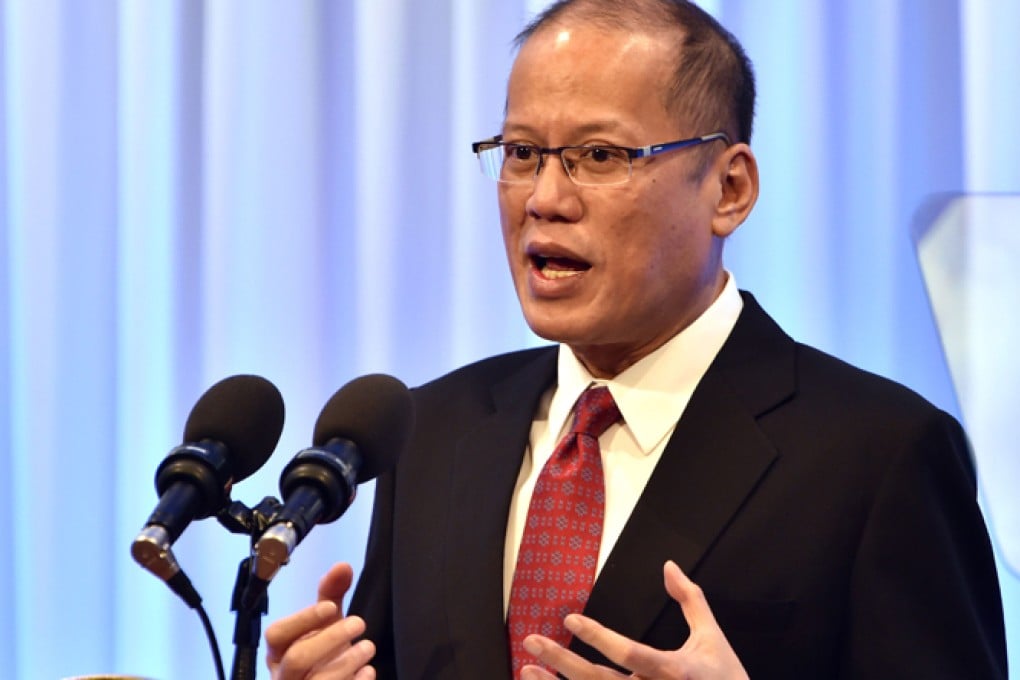Update | Philippine president likens China's territorial rise to Nazi Germany's during speech in Japan
'Nobody told them to stop,' Aquino says while drawing parallels between Nazi Germany and China's actions in the South China Sea

Philippine President Benigno Aquino III drew a parallel between present-day China and Nazi Germany during a speech in Japan, hinting that the world cannot continue to appease Beijing as it claims ever-more territory in the South China Sea.
The comments come as disquiet grows over the quickening pace of China’s land reclamation programme in international waters, including its construction of a runway long enough for large military planes.
“If there was a vacuum, if the United States, which is the superpower, says ‘we are not interested’, perhaps there is no brake to ambitions of other countries,” Aquino told an audience of business leaders in Tokyo when asked about China’s rising might and the role of the US in checking it.
“I’m an amateur student of history and I’m reminded of... how Germany was testing the waters and what the response was by various other European powers,” he said referring to the Nazis’ territorial conquests in the months before the outbreak of the second world war.
“They tested the waters and they were ready to back down if for instance in that aspect, France said [to back down].
“But unfortunately, up to the annexation of the Sudetenland, Czechoslovakia, the annexation of the entire country of Czechoslovakia, nobody said stop.